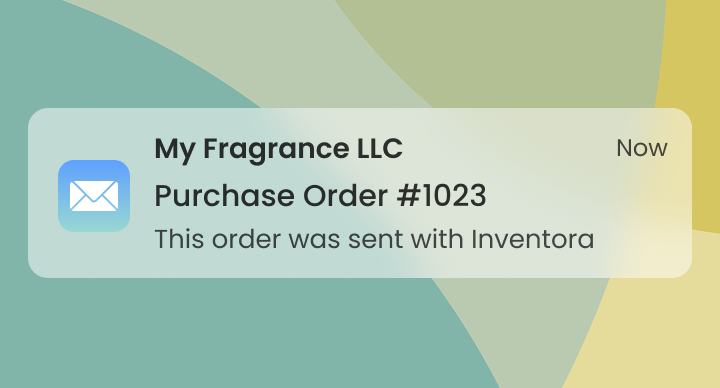
Keep stock levels in sync across all your sales channels.
Track materials & finished products
.
Manage production, purchasing, fulfillment, and more
Integrations with:
Adjust anywhere. Sync Everywhere.

Keep stock levels in sync across all your sales channels.

Sync made-on-demand products, bundles, and more.

Automatically calculate COGS of all synced sales.

View all your sales across multiple channels.
Supported Integrations






Easily stay on top of your operations



New Batch
12
pieces
Apricot Wax • 6 lbs
Lot #1268
Fragrance Oil • 3.2 oz
Lot #4321
Track every input that goes into your products
You produced 12 pieces in Batch #1082
2 days ago
Samantha produced 12 pieces in Batch #1081
2 days ago
Jason produced 24 pieces in Batch #1080
2 days ago
Maintain full production history for compliance and recalls
Import invoices or build purchase orders to send to suppliers

Upload PDFs, or photos of invoices

Send PDFs straight to your suppliers

Break down spending by supplier & more
Because we couldn't find anything else.
"In 2020, my business was exploding, and I couldn’t find anything to manage my inventory, production, and fulfillment. That’s when we started Inventora!"
Serving amazing makers around the world.

Erica Morris
Memorybox Candle Co.
"Organization is not one of my strengths, but Inventora makes it so easy. It has been a game changer for my business."

Caitlin Blue
Fiorella Soapery
"This app has saved me hundreds, if not thousands of dollars, because I never have to question how much I have of a particular material."

Morgan le Fay Candles
Shopify User
"Much more user friendly and intuitive than other systems I have checked out. The team at Inventora are always very quick to respond to support emails and seem to be developing the software and adding new features from time to time."
Join our Hobby Plan for free. Upgrade when you’re ready.